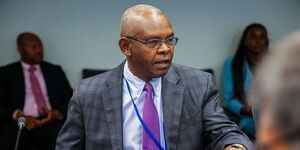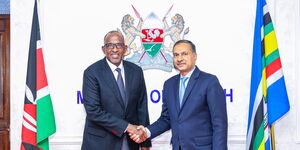The Ministry of Education has explained how Kenyans can secure more partnerships and tenders, particularly in the area of educational solutions such as technology.
Speaking at an event involving the government and private sector, Francis Karanja, Head of the National ICT Innovation and Integration Centre at the Ministry, advised Kenyans to align with government policies and priorities to increase their chances of winning tenders.
While elaborating on the matter on Thursday, May 22, Karanja noted that adhering to constitutional guidelines, especially for startups in the field of educational technology, was critical for partnering with the government on various projects.
He emphasised that this approach is particularly important as the government seeks innovative solutions during the rollout of the new Competency-Based Education (CBE) system in schools across the country.
Karanja further noted that for startups to remain sustainable in the long term, they must align with current government priorities to avoid potential conflicts or punitive action.
He cited the example of the World Bank, explaining that before implementing major education-related projects in Kenya, representatives from the organisation typically visit the Ministry's offices to present their proposals and outline their intended approach.
According to Karanja, this process ensures the government is involved from the conceptualisation stage through to actualisation and implementation, offering a clear point of reference for interested Kenyans.
This would ensure that the framework around the partnerships and tenders would be compatible with existing government infrastructure.
Karanja stressed that contrary to public opinion, the Ministry’s offices were always open and expressed the willingness of the State to work with interested Kenyans.
“We are very open, our offices are very open. We are not bureaucratic, and we always welcome those with startups and are eager to partner with the government for consultations,” he asserted.
In Kenya, the government has previously expressed their openness in engaging with startups in educational technology and have piloted digital learning content and devices through projects like the Digital Literacy Programme (DLP).
However, most startups in Kenya have decried challenges in entering into partnerships or getting tenders in government. The entities have cited complex documentation and eligibility criteria noting this locks them out of the tenders.












